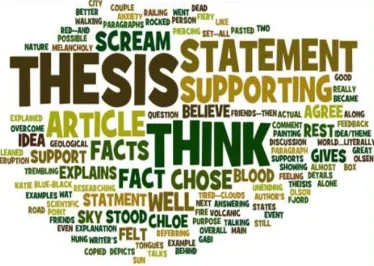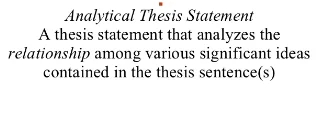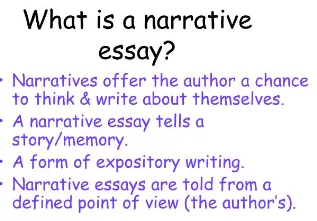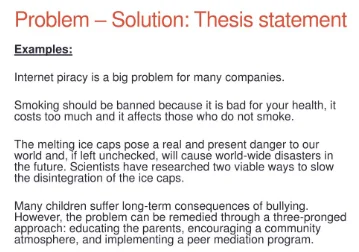9 Different Types of Thesis Statements: With Examples for Each

A strong thesis statement is a fundamental part of a well-structured argumentative essay or academic paper. It holds various important purposes.
Some of the purposes of a thesis statement include making the paper’s focus clear, guiding the writer, organizing the essay’s structure, enhancing clarity and understanding, and engaging the readers.
It also helps the writer engage in critical thinking, enhances the strength of the essay’s argument, and improves consistency. A thesis statement is usually part of the evaluative criterion.
The thing that differentiates a thesis statement from another is its particular characteristics and purpose. Different papers or essays require different types of thesis statements.
This article will discuss the different types of thesis statements in terms of their definition and explanation, provide examples for those statements, and demonstrate when to use them.
Different Types of Thesis Statements
1. The Expository Thesis Statement

This is a type of thesis statement used in research papers or expository essays. It is a clear and concise statement of the central argument or point of the essay.
The expository thesis statement is meant to explain, inform, or describe the topic that is being discussed.
It is neutral because its aim is not to persuade readers to adopt a particular perspective. It straightforwardly presents objective information and facts.
One example of an expository thesis statement includes: “The principles of Newton’s laws of motion lay the foundation for understanding the fundamental behavior of objects in the physical world.”
Another example is: “The process of photosynthesis, in which plants convert sunlight into energy, is a crucial part of the ecosystem’s energy cycle.”
Expository thesis statements can be used in situations where the aim is to explain a concept, provide information, describe a process, or present objective facts without trying to persuade the audience.
As such, expository thesis statements can be used in informative essays, expository research papers, how-to guides, and descriptive essays.
2. The Argumentative Thesis Statement
This is a thesis statement used in persuasive or argumentative essays. It presents assertive, clear, and debatable claims that the author or writer wishes to support using logical reasoning and evidence within the essay.
The argumentative thesis statement takes a stance on a particular viewpoint to persuade the reader to concur with that point of view.
An example of the argumentative thesis statement includes: “The government should implement stricter gun control laws to reduce the incidence of gun violence in the United States.”
Another good example is: “Social media has a detrimental impact on mental health, as it promotes unrealistic standards and encourages constant comparison with others.”
As aforementioned, argumentative thesis statements are meant to convince, persuade, or argue for a specific viewpoint or position on a debatable or controversial issue.
Therefore, argumentative thesis statements can be used in persuasive essays, discussions and debates, controversial topics, and opinion editorials.
3. The Analytical Thesis Statement

These are thesis statements used in research papers or analytical essays. They focus on breaking down and examining complex issues or topics into their basic parts and evaluating how they relate to each other.
The main purpose of an analytical thesis statement is to give insight, understanding, and interpretation instead of informing or persuading the audience.
One example of an analytical thesis statement is: “The economic crisis of 2008 can be attributed to a combination of factors, including risky financial practices, regulatory failures, and the burst of the housing bubble.”
The second example is: “In Shakespeare’s play ‘Hamlet,’ the character of Hamlet undergoes a profound transformation from a hesitant and indecisive prince to a vengeful and resolute avenger.”
The analytical thesis statement is used when the objective is to interpret, evaluate, or dissect a text, subject, or idea in a critical and detailed manner.
Such statements can be used in literary analysis essays, critical essays, research papers, comparative essays, and interdisciplinary studies.
4. The Comparative Thesis Statement
This is a thesis statement used in research papers or essays that are meant to compare and contrast two or more ideas, subjects, texts, or phenomena.
A comparative thesis statement highlights the similarities and differences among the things or subjects that are being compared.
They give a debatable, focused, and clear claim meant to be the foundation for comparative analysis.
The first example of such a comparative thesis statement is: “A comparison of Eastern and Western philosophies reveals fundamental differences in their views on the self, the nature of reality, and the path to enlightenment.”
The second example is: “When assessing the impact of two different economic policies, a comparison of austerity measures and stimulus spending reveals varying effects on economic growth and unemployment rates.”
Such statements are used in comparative essays, literacy and textual analysis, cultural and historical studies, argumentative essays, and academic research.
5. The Narrative Thesis Statement
The narrative thesis statement is used in storytelling contexts or narrative essays. It provides the main theme, point, or message the writer or narrator wants to convey.

It is focused on the purpose of the narrative in that it encapsulates the main lesson, idea, or experience the writer or narrator wishes to convey.
An example of the narrative thesis statement is: “The story of my grandmother’s life in war-torn Vietnam reflects the strength and determination that can emerge from adversity.”
Another example includes: “In the narrative of my childhood summers spent at the family cabin, I discovered the importance of cherishing simple moments with loved ones.”
Such thesis statements can be used in narrative essays, memoirs, personal reflections, oral storytelling, and creative writing.
6. The Persuasive Thesis Statement
This is a thesis statement used in speeches, argumentative essays, and persuasive essays. Its main purpose is to give a clear and debatable claim which the writer intends to support, argue, and persuade the audience to accept.
Persuasive thesis statements take a clear position concerning a controversial topic or issue and aim to convince the readers of the validity of that stance.
An example of such a thesis statement is: “The death penalty should be abolished because it is inherently inhumane, prone to error, and does not act as a deterrent to crime.”
Another example is: “Public schools should implement comprehensive sex education programs to reduce teen pregnancy rates and promote responsible sexual behavior.”
Persuasive thesis statements can be used in argumentative essays, persuasive essays, speeches and debates, op-eds and editorials, and policy proposals.
7. The Descriptive Thesis Statement
The descriptive thesis statement aims to paint a clear or vivid picture of an object, subject, experience, or place.
It focuses on clearly describing the topic or conveying a specific feeling or impression about the topic. It helps the reader know what to expect when it comes to imagery, emotions, or sensory details in the essay.
An example of a descriptive thesis statement is: “The bustling, vibrant market in Marrakech, with its vibrant colors, exotic spices, and the hum of haggling, immerses visitors in the rich tapestry of Moroccan culture.”
Another example includes: “The abandoned, dilapidated house at the end of the street, with broken windows and overgrown ivy, exudes an eerie and haunted aura.”
Such statements can be used in travel writing, descriptive essays, creative writing, art and film analysis, and immersive storytelling.
8. The Problem-Solution Thesis Statement
This is a thesis statement primarily used in reports, essays, or papers meant to address a particular problem or issue and propose the course of action or solution to resolve the issue.

The problem-solution thesis statement’s purpose is to recognize a significant issue and present an actionable and clear plan or solution to address it.
An example of such a thesis statement is: “The rising levels of air pollution in major cities can be mitigated by implementing stricter emission standards for vehicles and promoting the use of public transportation.”
Another example includes: “To combat the obesity epidemic among children, schools should incorporate healthier meal options, increase physical education requirements, and promote nutritional education.”
The thesis statement can be used in policy proposals, business reports, problem-solving essays, community action plans, and scientific research.
9. The Cause and Effect Thesis Statement
Finally, the cause-and-effect thesis statement is meant to explore and explain the connections between phenomena, actions, or events by recognizing the causes and their effects.
Such thesis statements establish particular causal relationships by explaining how one action or event leads to another, and the reasons their connections are important.
One example of a cause-and-effect thesis statement is: “The excessive use of social media among teenagers can lead to increased feelings of loneliness and anxiety, as it hinders face-to-face social interactions and promotes social comparison.”
Another example includes: “The decline of bee populations, caused by pesticide use and habitat destruction, has a cascading effect on food production and biodiversity, endangering global ecosystems.”
The thesis statement can be used in scientific research, cause and effect essays, historical analysis, environmental studies, and social and economic studies.
Conclusion
A strong thesis statement is a very important part of a well-structured argumentative essay or academic paper.
What differentiates a thesis statement from another is its particular characteristics and purpose. Different papers or essays require different types of thesis statements.
Therefore, it is essential to first identify the type of paper or essay before deciding on the thesis statement to use.

Josh Jasen or JJ as we fondly call him, is a senior academic editor at Grade Bees in charge of the writing department. When not managing complex essays and academic writing tasks, Josh is busy advising students on how to pass assignments. In his spare time, he loves playing football or walking with his dog around the park.




